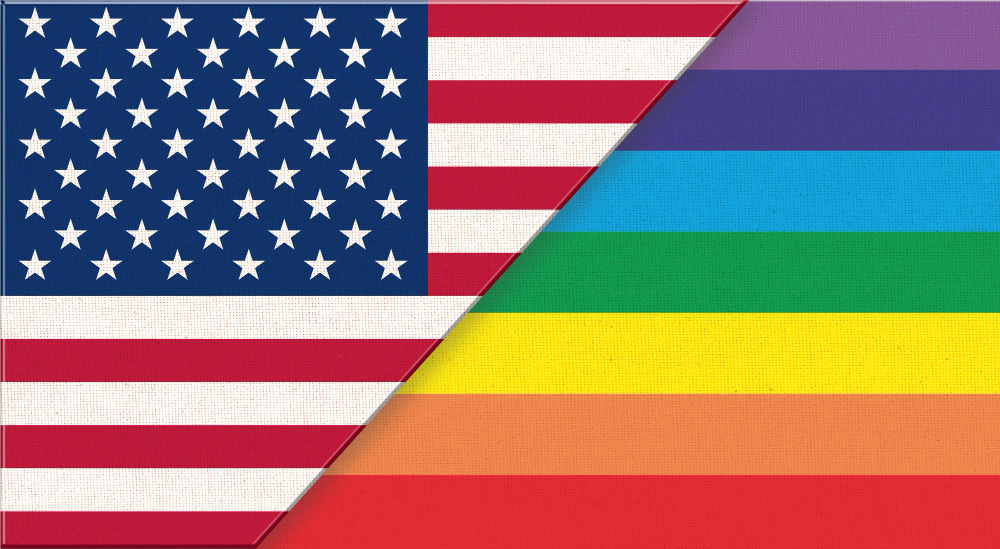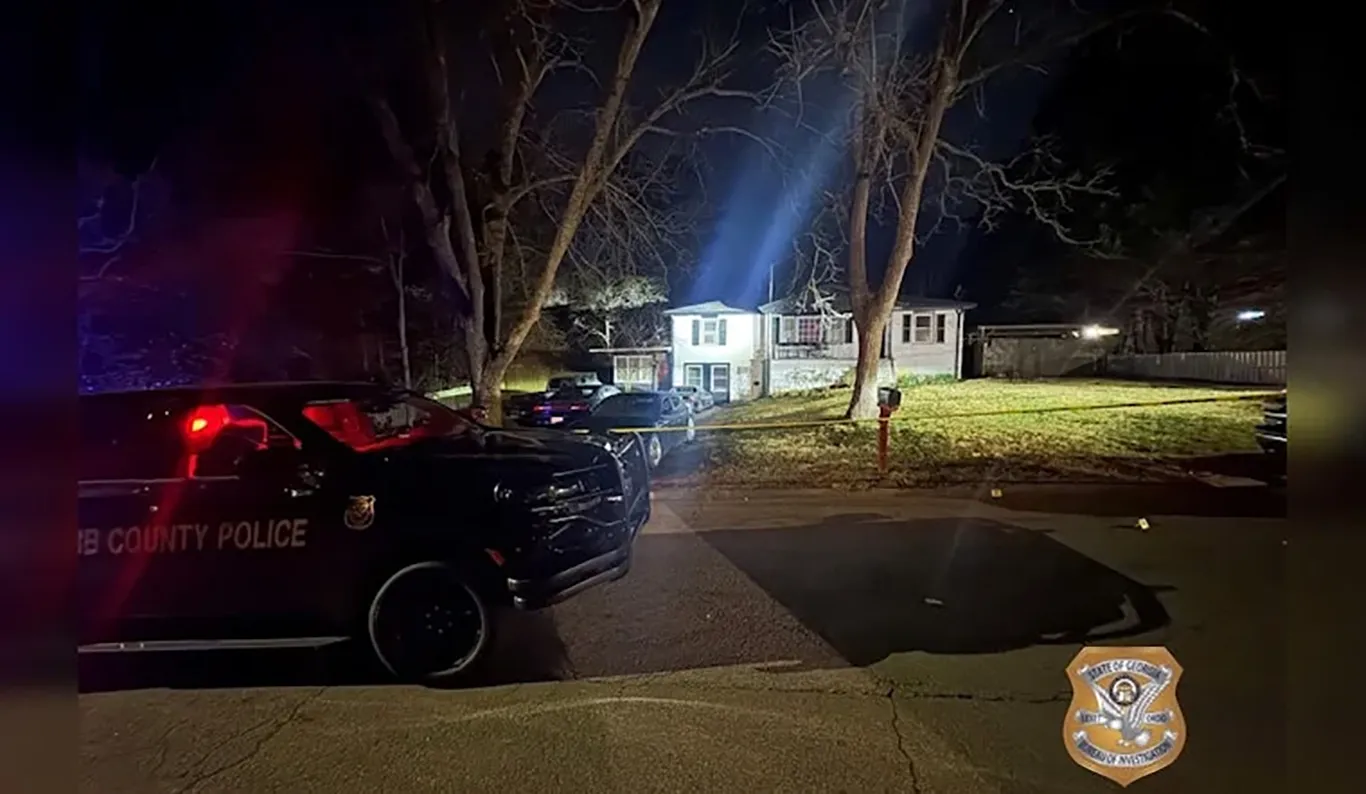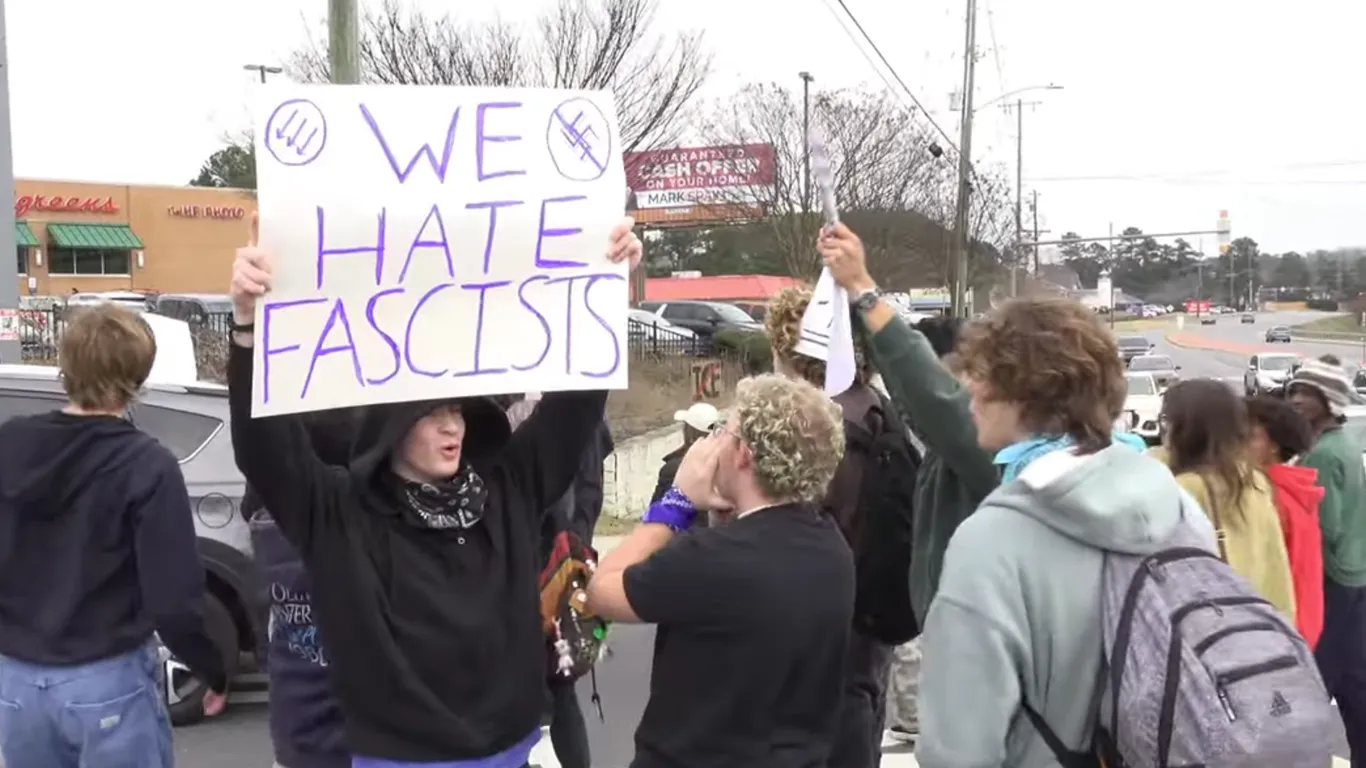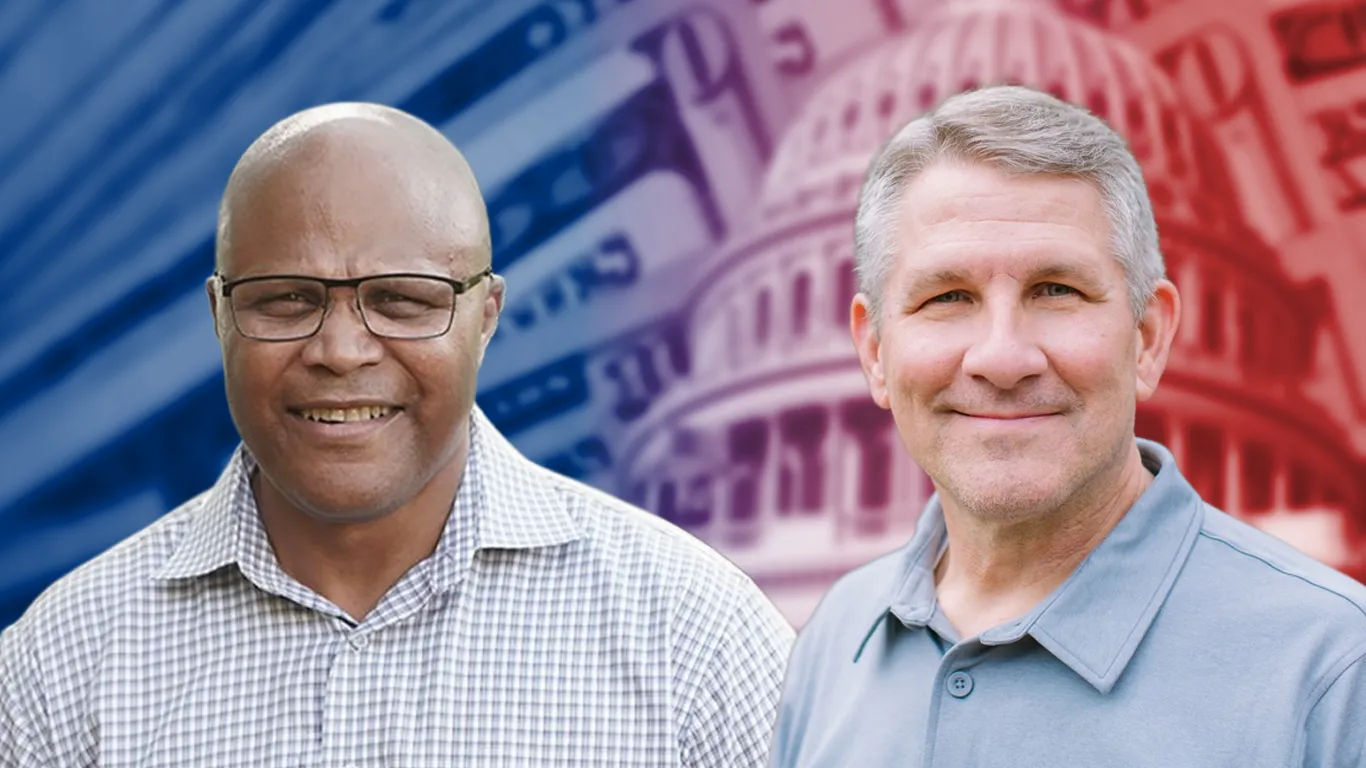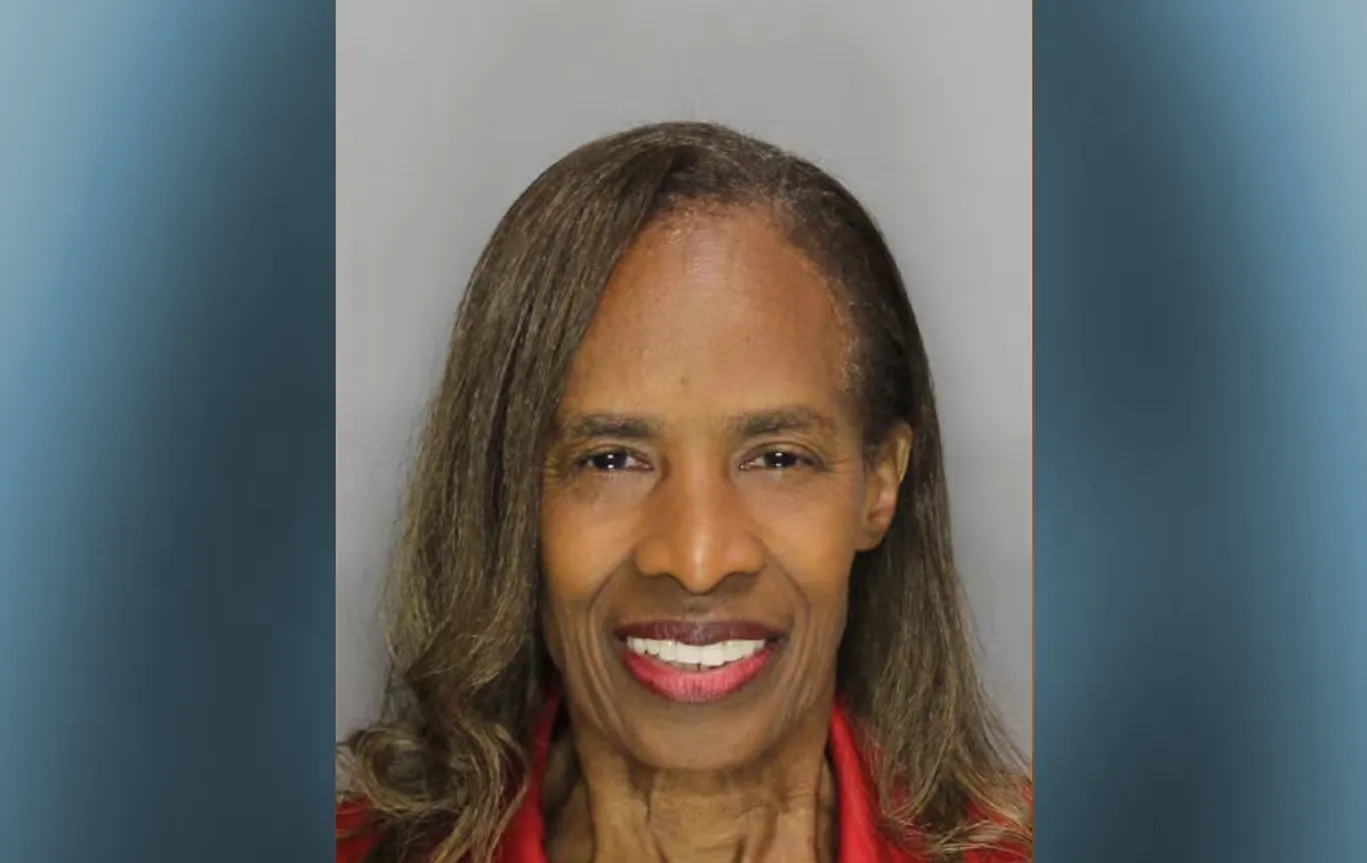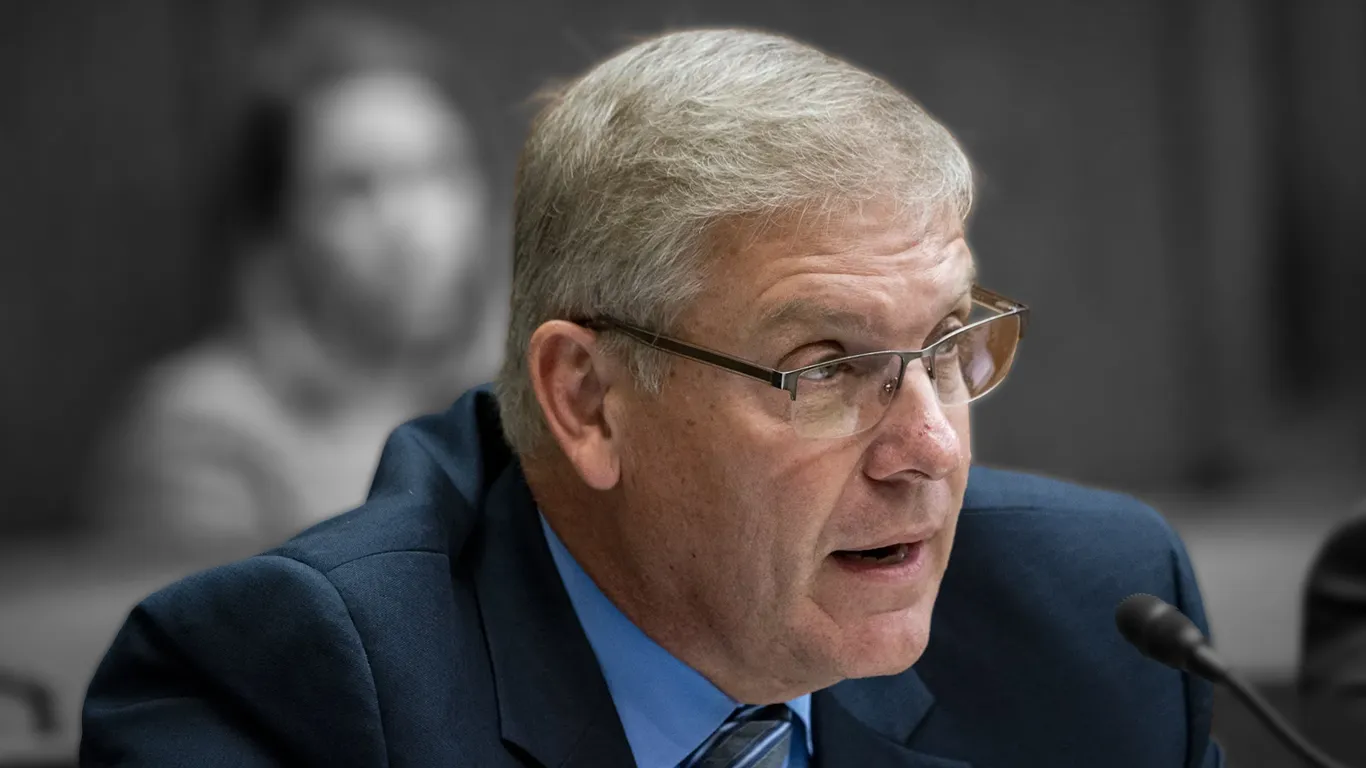After weeks of controversy, Smyrna Pride has reversed its decision to exclude the Georgia Log Cabin Republicans (GLCR) from participating in its June festival. But this was not a voluntary change of heart—it came only after legal intervention, public scrutiny, and mounting pressure from the Georgia Republican Party and Chairman Josh McKoon.
The controversy began when Smyrna Pride initially rejected GLCR’s vendor application to their upcoming June event, claiming they were barring all political groups to maintain neutrality. However, when evidence surfaced showing Democratic organizations and leftist advocacy groups were welcomed, that reasoning quickly fell apart. Smyrna Pride then offered to allow GLCR’s participation—but only under restrictive conditions.
Those conditions, which Log Cabin Republicans rightly rejected, would have limited their speech and held them to a different standard than other vendors. But after legal action and public pushback, Smyrna Pride ultimately relented, granting GLCR full, unrestricted participation.
This is a clear victory for free speech and equal treatment—but it also raises serious questions about the role of local media, Smyrna’s elected officials, and even taxpayer-funded legal resources in attempting to silence a conservative-leaning LGBT group.
Legal Pressure Forces Reversal
The turning point in this controversy came when Georgia GOP Chairman Josh McKoon and the Georgia Republican Party stepped in, making it clear that Smyrna Pride’s actions were a clear case of viewpoint discrimination.
McKoon, in a statement following the decision, made it clear that Republican voices would not be silenced:
“An unqualified victory for the First Amendment,” McKoon said. “As long as I am Chairman of this Party, we will demand aggressively that Georgia Republicans be allowed to make our case and will push back against any attempt to silence our voices.”
GLCR also took a strong legal stance, stating that Smyrna Pride’s conditions were an attempt to limit conservative speech in a public space—a direct violation of constitutional protections.
Faced with mounting pressure, Smyrna Pride had little choice but to allow GLCR to participate on the same terms as every other vendor.
UGA Law’s Involvement Raises Serious Concerns
Another alarming aspect of this case was the University of Georgia School of Law’s role in supporting Smyrna Pride’s now-defunct restrictions. In an unusual move, The First Amendment Clinic at UGA Law sent a cease-and-desist letter to Log Cabin Republicans on behalf of Smyrna Pride, accusing them of:
- Spreading “false information”
- Interfering with sponsors
- Making legal threats
But the facts didn’t support those claims. In reality, GLCR had simply challenged Smyrna Pride’s exclusion and pointed out their preferential treatment of Democratic-aligned groups.
This raises an important question: Why was a publicly funded law school assisting an organization in defending viewpoint discrimination?
Taxpayers deserve answers. If a public university’s legal resources were used to target and suppress a conservative LGBT group, that would be a serious misuse of public funds.
Perhaps the Georgia General Assembly should take a closer look at how taxpayer-funded institutions are being used to influence political and legal battles.
Smyrna Pride’s Gaslighting of the Facts





Smyrna Pride’s leadership has also taken to social media in what some critics call an effort to rewrite the narrative. Public statements (which have since been removed from Smyrna Pride’s Instagram account) suggested the group is merely trying to keep the peace, but internal group text messages, emails and documentation published on X.com by Josh McKoon, Chair of the Georgia Republican party tells a completely different story.
According to these documents, Smyrna Pride organizers allegedly openly discussed their intent to exclude the Georgia Log Cabin Republicans. Yet, at the same time, actively planned to recruit vendors from political organizations and left-wing advocacy groups—despite claiming to be “non-political.”
It’s interesting that they also openly point out that excluding the GLCR could land them into legal difficulties however as stated in the message below, one organizer said “I’m in a fuck it mood” and was clearly only interested in participation from “any and every candidate, political affiliate aligned to our mission”.
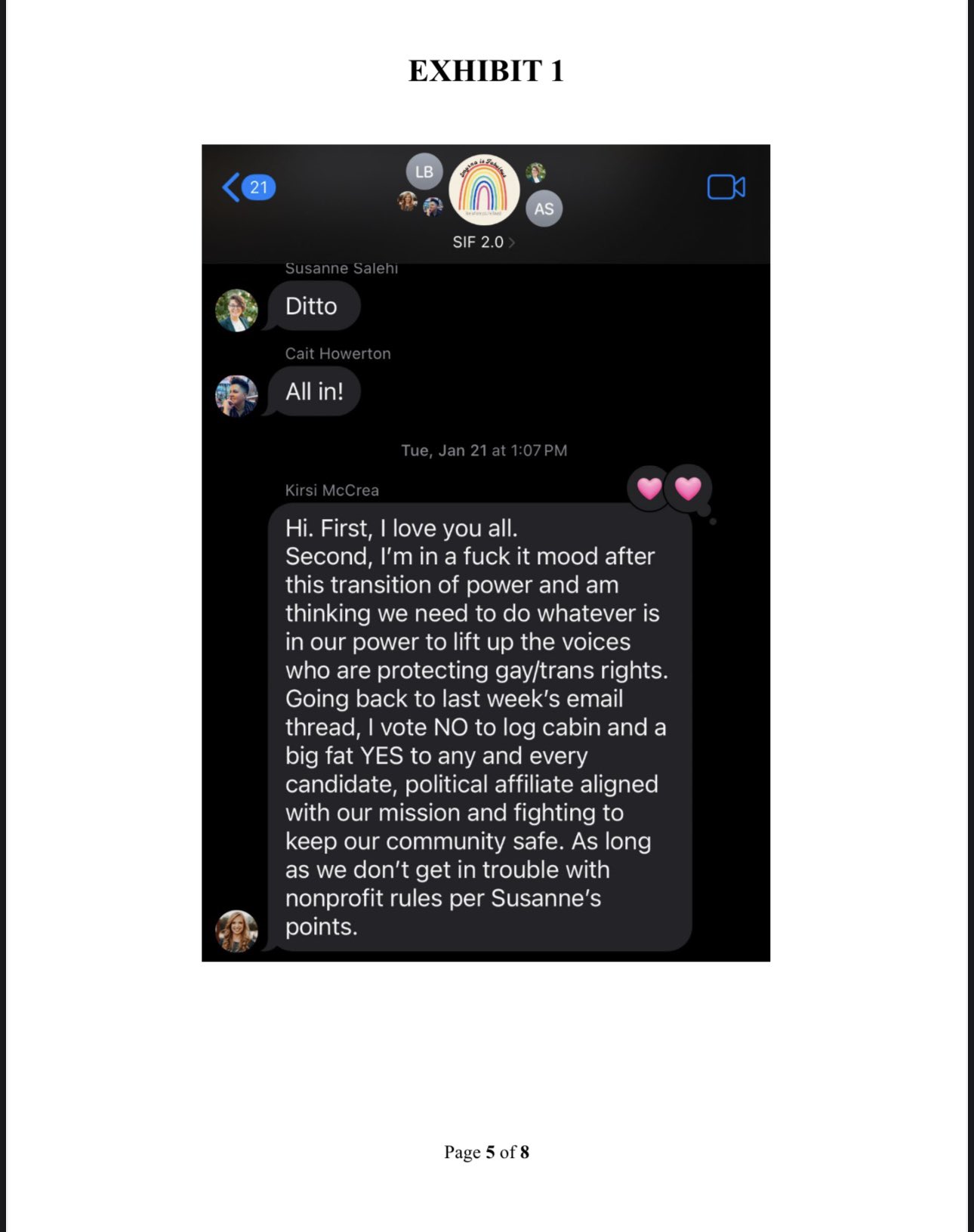

The Media’s Role: Ignoring the Facts, Pushing a False Narrative
Another disturbing aspect of this controversy has been the media’s handling of the story.
Instead of asking tough questions about why an organization operating on public property was engaging in viewpoint discrimination, many local outlets framed Smyrna Pride as the victim—suggesting that GLCR was somehow “bullying” its way into the event.
Local news media including the Atlanta Journal-Constitution (AJC), has amplified Smyrna Pride’s claims without scrutiny, ignoring clear evidence that:
- Smyrna Pride had allowed Democratic political groups to participate
- Smyrna Pride’s founder had resigned in protest over its actions
- Legal pressure—not goodwill—forced Smyrna Pride to change its position
This is not journalism—it’s advocacy. The media’s refusal to report fairly on this issue did a disservice to the public and the principles of free speech.
Would they have taken the same approach if a left-leaning LGBT group had been barred from a conservative event?
It’s a fair question—one that deserves an answer.
Where Are Smyrna’s Elected Officials?
Another major concern is the lack of response from Smyrna’s city officials.
Smyrna Pride’s event is not a private gathering—it is being held on public property with:
- A permit from the City of Smyrna
- A liquor license issued by the city
- Street closures and law enforcement assistance
Despite this, Smyrna Mayor Derek Norton and Councilwoman Latonia Hines remained silent as this controversy unfolded—even though they were reportedly aware of GLCR’s application before it was denied.
Why was a publicly sanctioned event allowed to impose ideological restrictions on participation?
Are local officials hesitant to challenge LGBT activist pressure?
At a minimum, the city should explain why it allowed a group operating with public resources to engage in exclusionary practices
—practices that would have remained in place had legal pressure not been applied.
Even Smyrna Pride’s Own Founder Couldn’t Defend Their Actions
Perhaps the most telling development in this controversy is the fact that one of Smyrna Pride’s own founders, Mike Mitchell, resigned in protest over their actions.
Mitchell, who has spent years advocating for equality and inclusion, made his frustration clear:
“I’m saddened that it took the threat of legal action to make the reversal happen. I have worked for equality and inclusion for more than five years now and see the debris when that inclusion is not given.”
Rather than stand by the discriminatory actions of Smyrna Pride’s leadership, Mitchell left the organization and joined the Georgia Log Cabin Republicans.
In an interview with Cobb Voice, Mitchell stated:
“I am committed to assisting the Log Cabin Republicans participate in any and every Pride event, as Republican groups are sure to face more of this type of discrimination moving forward.”
Mitchell’s departure underscores a growing frustration among many in the LGBT community who feel that activist organizations have been hijacked by a narrow ideological agenda—one that demands absolute conformity and actively discriminate against Republican ideologies.
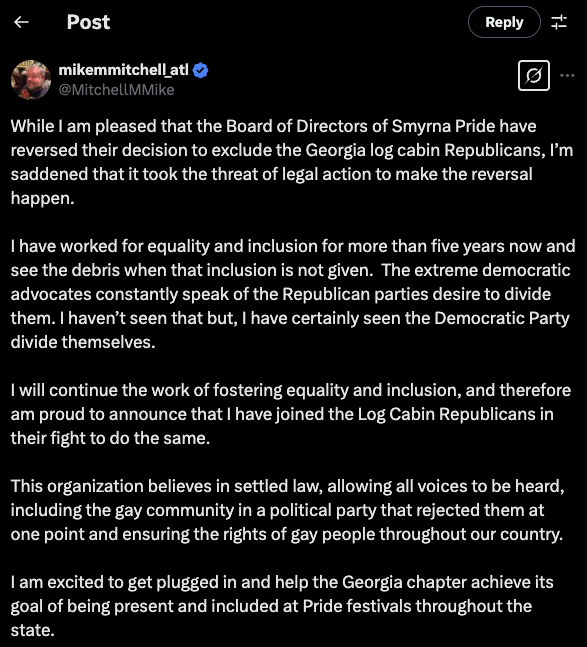
A Victory for Free Speech—and a Warning for the Future
This case sets an important precedent:
- Viewpoint discrimination will not go unchecked.
- Republicans will not tolerate exclusion from public spaces.
- Legal action works—and conservatives must continue to push back.
Georgia Log Cabin Republicans will be at Smyrna Pride this year—but this fight is far from over.
Public universities should be held accountable for their involvement in political censorship.
Local officials must be transparent about their role in publicly sanctioned events.
The media must be challenged when it ignores or distorts the facts.
This wasn’t just about one Pride festival. It was about a fundamental question of fairness and free speech.
And this time, the right side won. ability to speak out about what many see as blatant discrimination.
Exhibits to the letter from our attorneys. pic.twitter.com/PcueSFOvaQ
— Josh McKoon 🇺🇸 🇹🇼 🇮🇱 (@JoshMcKoon) February 26, 2025


